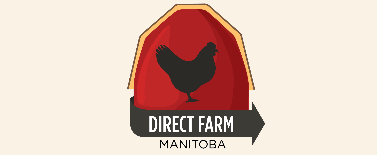Toxic wastewater lakes necessary to feed oil habit
 Tuesday, December 10, 2013 at 5:41PM
Tuesday, December 10, 2013 at 5:41PM By Selena Randall
Today I read with some dismay about the latest plans from the energy companies in Alberta. Plans for the largest man-made lake district on Earth have been submitted to the provincial authorities, for the flooding of abandoned tar sand mines with a mix of tailings and fresh water. Syncrude have already started to flood Base Mine Lake which will measure 2000 acres. The plans say that these artificial lakes will eventually replicate a natural habitat, complete with fish and waterfowl – they think, they don’t know, it’s all experimental…only it’s not being done in the confines of a research area like Ontario’s ELA, but in the tar sands – the economic centre of the Harper Universe.
Why am I dismayed – it’s reckless – they don’t know if these lakes will remove the pollution they contain safely.
How did we get into this mess, I hear you cry?
It’s through our want for oil-based products, plain and simple.
Oil drives so much of our lives – not just our cars. From the lenses in my glasses, the elastic in my lingerie to the soles of my shoes and the keyboard I am typing on. So many of the day to day items we use are oil-based.
A ‘google’ search came up with a number of websites giving hints on how to reduce your personal oil consumption. There were the obvious ones like driving less, driving slower, maintaining your tire pressure, not idling, taking a reusable bag and buying less stuff, but I also came across some good hints for avoiding oil in other areas of your life.
Avoid plastics and nylon (petroleum products) and buy items made from recycled plastic
- Avoid Styrofoam, bubble gum, and disposable ball point pens
- Give up bottled water and fizzy pop – carry a BPA free or stainless steel travel bottle and refill with tap water as you go
- Buy fresh bread in paper bags or make your own
- Buy used (thrift store, kijiji, garage sales) and repurposed to avoid packaging
- Ditch nylon and polyester and choose natural fibres (I can personally recommend bamboo for the softest towels and socks)
- Wax floors with beeswax
- Buy all-natural scents made from essential oils or even design your own personalized fragrance
- Buy beeswax crayons for the kids and use soy-based inks in your printer
- Remodelling the house – avoid tar on your roof in favour of aluminum or clay tile; avoid wall to wall carpet with its synthetic backing; remodel your shower with a glass panel screen to avoid the need for a new plastic or nylon shower curtain every few months; and maintain your wooden deck with natural oils.
I’ve stopped at 10, but there are many ideas out there. Just check out www.plasticfreeguide.com for a whole range of practical ones, many of which require very little effort.
I can hear you thinking ‘it’s too hard’, ‘it sounds expensive’. I can’t deny that some oil avoidance will take a little effort, but saying ‘no thanks’ because something comes in plastic is easy and saves you money!
This column is prepared by the South Eastman Transition Initiative. Go to www.setimanitoba.org



Reader Comments